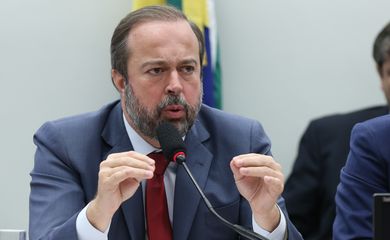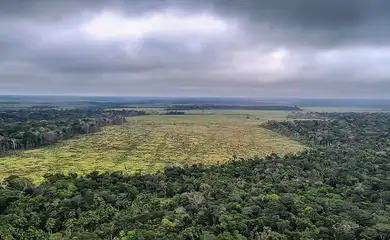Amazon becomes major topic on UN 2030 Agenda

The survival of the Amazon has become one of the commitments in the 2030 Agenda, the pact made between 193 member states of the United Nations (UN) for Sustainable Development. To this end, the Amazon Impact Movement was unveiled Thursday (Sep. 14) during this year’s edition of the UN Global Compact in Brazil, at the United Nations headquarters in New York.

The initiative highlights the need for investments and policies aimed at preserving the forest, valuing and protecting the region’s traditional peoples and territories, and aligning technology with sustainability.
This is the first movement of the UN Global Compact in Brazil directed at the Amazon region, with a focus on public commitments made by state-owned and private companies to leverage the sustainable development of the Amazon.
According to a Pulse survey carried out in September with 160 companies participating in the UN Global Compact in Brazil, 58.54 percent of Brazilian companies reported they had assessed the operational risks in the face of the climate crisis. However, 79.72 percent said they had not gauged the link between the supply chain itself and deforestation in the Amazon.
The study also shows that 64.63 percent of companies do not include clauses in their contracts with suppliers that contain commitments not to deforest the Amazon.
According to the UN, the emphasis on deforestation is one of the ways to directly achieve other commitments of the 2030 Agenda, like climate action, responsible consumption and production, and sustainable agriculture.
Carlo Pereira, CEO of the UN Global Compact in Brazil, stressed the importance of urgent measures to preserve and sustain the Amazon. In his opinion, action is urgently needed before the forest reaches a point where its existence and the world’s ecological balance are no longer possible.
“The forest is going through a savannization-like process, where we lose this rich forest that we have. This is a catastrophe not only for Brazil, but for the world,” he said. “The Amazon plays a major role in climate balance, which is why, now with data and facts, all international attention is focused on the Amazon,” he added.
Corporate action
Eletrobrás and Ambipar are ambassadors of the Amazon Impact Movement, the project aimed at preserving the Amazon. By the end of the first half of 2024, Banco do Brasil also plans to invest BRL 23 billion in efforts aimed at climate issues, such as renewable energy and energy efficiency, as well as environmental recovery.
The bank has been working toward a low-carbon economy, in line with the goals set for the 2030 Agenda and the principles of the global pact. The pact addresses issues such as human rights, labor, the environment, and the fight against corruption.
Nonprofits have also adhered to the pact. The Federal Prosecution Service, for instance, will form working groups to help find solutions to critical problems in the Amazon.
Society
Rethinking corporate policies and the behavior of society as a whole is urgent and has been one of the main concerns of the UN Global Compact. Rachel Maia, president of the UN Global Board of Directors in Brazil, says that, in addition to promoting change, a transformation should be brought about not only among large companies, but also among the people.
“The sustainability of the company does not apply to the size of the company. That’s a mistake. It applies to the individual. The UN Global Compact is for everyone. That’s the big message. The UN has the great responsibility of announcing that no one is to leave anyone behind. That was the great agreement of the 2030 Agenda. With that in mind, I’m going to look at the person in the favela as well as the person in the mansion,” she said.
Backtracking on results
The 2030 Agenda was born in 2000 out of another pact: the Millennium Agenda. On the occasion, all 193 UN member countries signed the UN Global Compact on responsible corporate practices. Today, the UN Global Compact is the largest corporate sustainability initiative in the world, covering 162 countries.
Eight years after the UN countries adopted the 2030 Agenda for Sustainable Development, the progress of the pact is not considered to be going well. The CEO of the UN Global Compact in Brazil says there have been setbacks in the global goals caused by “financial crises, major wars, pandemics, and several other points that have led us to regress on most of the issues.”
To mitigate these setbacks, Pereira said, the UN Secretary General has been bringing together world leaders as well as society and large companies, so that the agenda can get back on track and efforts to address it can be accelerated.
*The reporter traveled at the invitation of Banco do Brasil.



